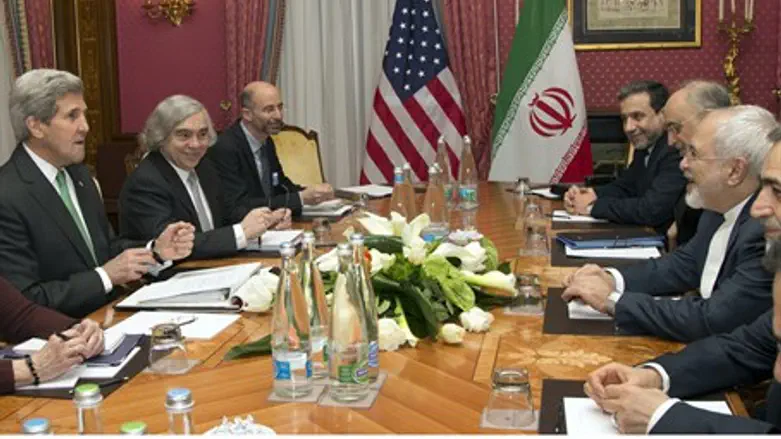
The United States made clear on Wednesday that it will not consider an extension to reach an agreement on curbing Iran's nuclear program, despite indications from France and Iran that talks may stretch into July.
"We're not contemplating any extension beyond June 30," State Department spokesman Jeff Rathke said at a news briefing, according to the Reuters news agency.
He added that the United States believes the world powers working with Tehran can achieve their goal of reaching an agreement by the self-imposed deadline.
Secretary of State John Kerry plans to travel to Geneva for a May 30 meeting with Iranian counterpart Javad Zarif in another round of talks weeks before the deadline, according to Reuters.
Earlier, as talks resumed in Vienna to bridge gaps in negotiating positions, Iran's state TV quoted senior nuclear negotiator Abbas Araqchi as saying the deadline could be extended, echoing comments by France's ambassador to the United States, Gerard Araud.
The sides made a major breakthrough at talks with Iran on April 2 by agreeing on the parameters for a final deal to scale back its nuclear capabilities.
The negotiators, however, still have a series of technical issues to resolve by a June 30 deadline for a final deal, including the steps for lifting sanctions imposed on Iran.
Another point of contention between the sides is the question of inspections of Iran’s military sites. Iran has categorically denied reports that it would allow inspectors as part of a final deal, describing them as mere rumors and as wrong interpretations of the understanding reached in early April in Switzerland.
Top Iranian commander Brig. Gen. Hossein Salami recently reiterated those statements, saying his country will never permit “foreigners” to inspect its military sites.
However, IAEA chief Yukiya Amano has insisted that a nuclear agreement would give his experts the right to push for access to Iranian military sites.
Amano said Iran specifically agreed to implement what's known as the agency's "Additional Protocol" when it agreed to the outlines of the deal now being worked on.
The protocol would allow the agency's inspectors much more access than they have now to follow up on suspicions of undeclared Iranian nuclear activities or equipment.

